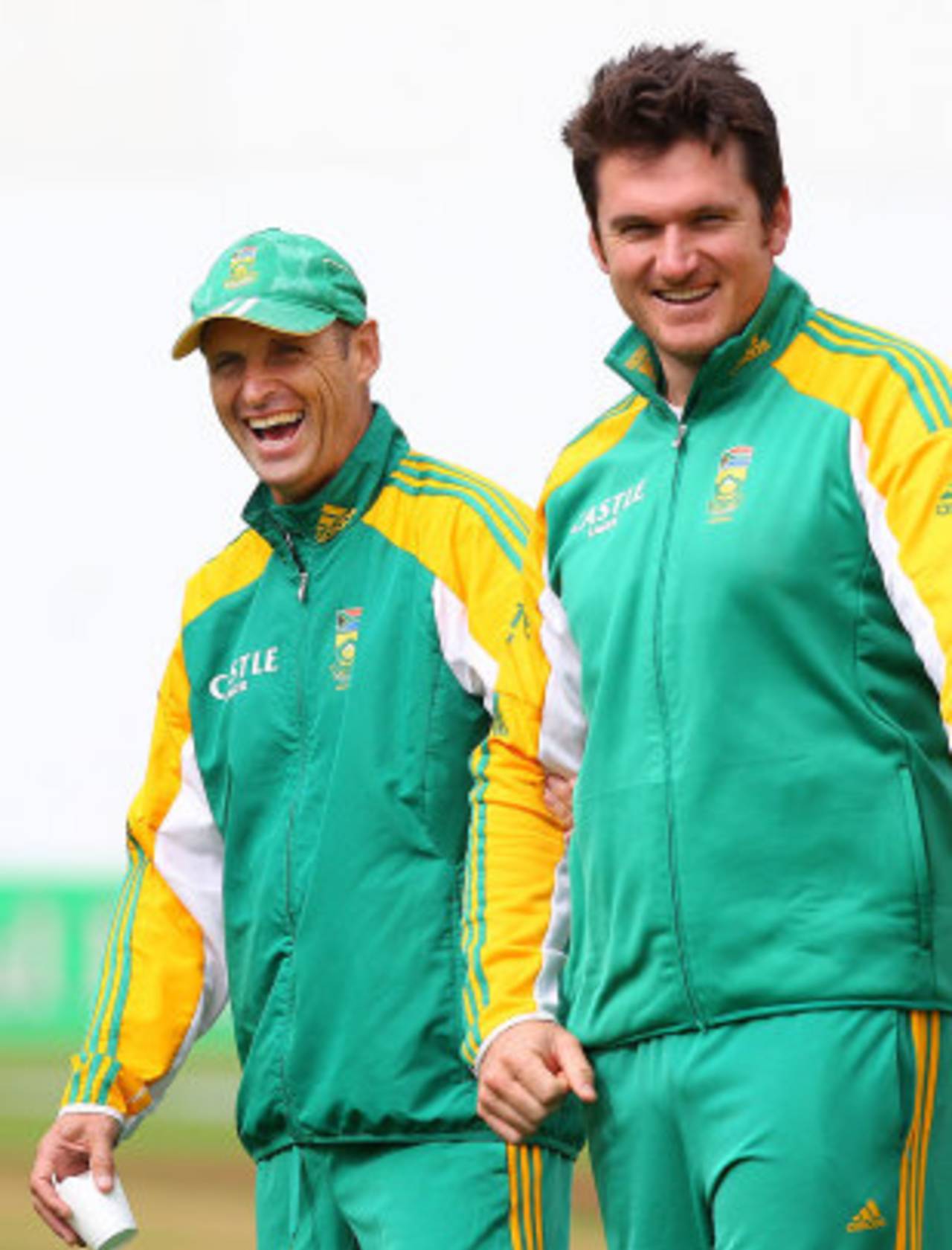'He had a feel for the energy of the team'
Self-belief, presence and a feel for his players - Gary Kirsten on why Graeme Smith was a natural-born leader

Gary Kirsten: "There is no other job in cricket mentally tougher than opening the innings and doubling up as a captain" • Getty Images
The first things I noticed about Graeme was, he had the self-belief and courage at a very young age to want to do the job. I remember at the time Eric Simons was the South African coach and he was considering a new captain. The name Graeme Smith came up although he had been in the team for a very short time. And he was 21 years old. Eric asked him and Graeme said, absolutely, he would love to do it. So the self-belief to be able to do the job and also to have the confidence and courage to accept the responsibility I can never forget.
My last Test was against New Zealand in Wellington. It was the final Test of the three-match series and we were 1-0 down. At Basin Reserve, we went to stumps on the fourth evening at 82 for 3, chasing a target of 234. Graeme was batting on 46 and I was on 19. On the eve of that match Graeme had delivered a motivational speech with tears in his eyes. It struck me that we had a guy leading the team that players have to go out and play for. The way he spoke that day awakened me to the fact that here is a 22-year-old with limited captaincy experience at the highest level, and yet he could deliver a speech like that.
The best thing about presence in leadership is, you can have credibility from your players. MS Dhoni has that presence. Graeme had the same. They don't have to say much. Great leaders display this presence. They don't have to stand up and shout and scream and say, this is the direction we are moving as a team. Just their presence, their body language, tells you where we are. With Graeme, the one thing he always had was he was a big guy. And because he was the in-your-face type guy, you knew he was ready for the battle. In addition he was a very good orator. Then he had the courage and determination to do the job.
He was the man who was always at the front of the row. And as an opening batsman we know how tough it is opening in Test match cricket, especially in South Africa, which potentially can present some of the toughest conditions for openers. It was an important example to set: that he was always the one accepting the highest pressure, and accepting the responsibility that came with it. So it was a comfort zone for players knowing that their leader was a guy accepting the pressure and the heat at the highest level.
"I played my last Test specifically to respond to Smith's call to his troops"Gary Kirsten
His man-management abilities were really strong. He had a great feel for where the players and his team were mentally. He had a feel for the energy of the team, where it was, and when he needed to provide inputs and when it was not needed. As a leader you've got to know firstly when to say something to an individual and then how to say it. So if there is a piece of information you want to give someone, you've got to know what is the right moment to do that. I used to watch Graeme walk around during training and watch him have one-on-one chats with a player. Without knowing the specifics I know the chat would have centred around giving the guy confidence, to know that his captain was backing him. The most important thing about man management is taking the time to do it. He cared about his players. He had instinct about when to chat to his players.
He was very good with the media. He learnt how to deal and talk to the media. He knew what to do and how to do it. He fended off a lot of negativity that came via the media or he took it upon himself. He always tried to protect his team in that space - if there was anything that was levelled at the team or if the team was criticised, he was prepared to take that on. So in a true sense of the word he was a leader who was prepared to accept the responsibilities that came with the job.
Nagraj Gollapudi is an assistant editor at ESPNcricinfo